MP and his China Story 新州议员眼中的中澳自贸高速公路
Southeast Net Australia Site with Mark Coure MP - Member for Oatley
新南威尔士州下议院议员Mark Coure专访
By Han Thursday April 7, 2016
东南网澳大利亚站 4月7日
As a typical Chinese brought-up who alwalys has the problem with facial recognition of westerners , Mark has a highly recognizable face to me and charming smile as well, which distinguishes him from any other Chinese politicians I have been in touch with. He represents Oatley in the parliament of New South Wales, also, being the first interviewee of our newly-launched website. This is a coolish morning of the April of Sydney, Australian Southeast Net correspondent Han and Mr. Mark Coure MP start talking in his bright sunny office.
Southeast Net Australia Site Journalist: Han Mark Coure MP: Mark
Mark & China
Han: You have got a lot of Chinese craft here in your office, you are a big fan of Chinese culture, aren't you?
Mark: Yeah, have been to China about eight times.
Han: Where about you have been in China?
Mark: Chengdu, I spent 3 days in Chengdu. I love Hotpot (Laugh). It was an Australian business economic summit. Then I went to Chongqing, which was two hours away.
Han: Did you take the high speed train there?
Mark: Yes, I did.
Han: How did you feel about the high-speed train?
Mark: I love high-speed train. In addition to that I have been to Fuzhou. Also, I have been to Shanghai about 6,7 times. I represented the government every time I have gone over to China, and I am looking at another trip to China in a couple of weeks. I have not organized anything yet, but hopefully in a couple of weeks. It's a delegation with doctors and those in the medical commission here in Sydney, willing to expand into China.
Five Years a MP
Han: Speaking of medical service, you have done tremedous jobs on local hospital. What do you think a good hospital means to the people in Oatley?
Mark: My electorate which covers hurstville for example, sees a huge benefit in the redevelopment of St Goerge Hospital. The new emergency department has been a promise. It's the major redevelopment of the hospital. It's the first redevelopment in 16 years. This is quite a news for the communities in my eletorate and people in St goerge area. For the first time we have seen an upgrade taking place to make demand.
Han: What was the No.1 challenge raising fund for that upgard?
Mark: Obviously most of them has been already funded by the state budget. That was announced last year, some more will be funded in this year's budget. The new emergency department is 41 million. That was what we have promised to do. We delivered our promise.
Han: It's been 5 years now since you started your MP career. I was at your fifth year's auction dinner with Chinese communities. Does it make any difference to you raising fund out there?
Mark: Chinese communities are very active across Sydney and in my local electorate as well. They live throughout my area. I have one of the electorates that have one of the largest Chinese population anywhere in Australia. Chinese communities are very much pro-business, pro-family and pro-community. They care about their communities, they care about what government or parliament do for their community. They have been very active in trying to support them.
The Largest Chinese Community
Han: Do we have the exact number of how many Chinese people are living in your electorate?
Mark: 18%,which is roughly about between 9.5 and 12 thousand people.
Han: What has been te No.1 challenge reagarding your work with the Chinese Community?
Mark: There are lot of challenges just like everyone else in the communities. For 16 years, very little was built, very little was upgraded. There was infrastructure backlog, there was a huge demand for upgrade to schools, to hospitals, to Oatley stations, and we have been out to deliver all of that. We have been out to deliver the upgrade for Oatley station, which is about to be finished early next year.
Han: Have you felt the language barrier being one of the problem of Chinese communities esecially for mid-age Chinese immigrated?
Mark: We have free language class throughout hurstville. I have people in my office who work for me who can speak mandarin and cantonese. It's good that it's been a great partnership in the Chinese communities.
On Free-Trade Agreement and More
Han: With the increasing number of Chinese immigration in Australia, there Australian critics who are afraid of China, or Chinese investment, for it to be threat. How'd you see it?
Mark: I don't see it as a threat. At the end of the day, I have been there about 8 or 9 times, plus twice this year. China is a facinating country. It's a country that we are getting closer with. We have just signed the free-trade agreement. President Xi Jinping came to Sydney back in November 2014, and I had the honer to meet with him here in Sydney. The photo is in my wechat account. Signing the free trade agreement is the first of many firsts. Since diplomatic relations were established between our countries 43 yeears ago, our relations have gone from strength to strength. A number of Prime Ministers have gone to China, and a number of Presidents have come to Sydney here in Australia. We have got a very healthy economy here. We can walk dwon the main street of hurstville and see the benefit that the Chinese community has provided the local economy of hurstville. We have got many great and wonderful Chinese reasaurants. We have got the Chinese communities very active in politics, laws and accounting in my electorate. Generally I think the Chinese community has provided a great benefit not only in my electorate but in Sydney, Australia as well.
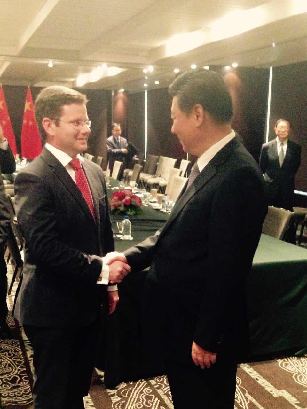
Han: Does that reveal that you are 100% in favor of Chinese investment here in Australia?
Mark: Chinese investment helps Australian economy. It is another myth that just Chinese communities are buying our agricultural land. That's not true. If you look at Commbank's statistics about who's buying what, there are mostly places like America, the UK, parts of Europe that are buying many of our agricultural property, not Chinese. That's another myth by the union movement.
Han: As both politician and former business operator, how would you predict last year's free-trade agreement may impact the bilateral trade between China and Australia?
Mark: Free trade agreement is good in many remarks. The first point is it would open up doors in China for businessist here in Australia. Secondly, it will open up doors here in Australia for businessists in China who want to do business here in Australia. It helps both businesses in small medium and large scales, in both countries.
In addtion, if you look at the population in Australia. We are now over 24 million, when China is 1.4 billion. So it opens us to a bigger market overseas. What we are seeing at the moment is a huge middle-class emerging in China. Over the next 30 years I estimate, over 700 million people (in China) would be a part of the middle-class. Obviously there will be a even bigger construction booming in China over the yaers. We want to be a part of that investment, we want to be part of the economic revolution China is undertaking at the moment. Now is a good time more than any other times.
Han: Let's talk about another hot issue over the social media of both China and Australia, which is Australian moms complaining about Chinese moms purchasing too much baby formula from Australia. Would you consider it as a problem revealed in the bilateral trade?
Mark: I don't see it as a problem at all. Obviously they should increase the supply.There is a limitation on how many you can buy and take back. I gree with that.
Han: At the very beginning of our interview, you talked about your experience with high speed train from Chengdu to Chongqing. Australian people have been talking about the feasibity of building high speed train here in Australia as here. Do you consider Australia is now at the stage of doing so?
Mark: I believe in a bigger Australia. I believe in expanding the Sydney basin. The only way that you are gonna be out to ease congestion here in Sydney, is transport, or fast rail between Sydney and Centrel Coast, Sydney and New Castle, taking that out to western new south wales. If it is a 40 mins train trip on a fast rail from Sydney to Canberra, people would live in Canberra to get out of the congestion. That is something the government needs to look at. It's a huge cost. But it would benefit Sydney and Australia, cause we've gotta take people out. You can't expand Sydney, cause you have got the water around it and national park on the bottom. We need a fast rail link that would take us beyond those points to central coast, new castle, etc. People would catch fast rail to Canberra for example.
It's on the government agenda at the moment. It should be.
走进马克库瑞敞亮的办公室,我有些惊讶。一来是没想到一个州议员的办公室这么小,二来是落地窗外的广阔景致与州议会大厦里有些局促的氛围实在反差太大。
我们一行四人的到来让原本就不大的办公室看起来热闹了许多,马克热情地和我们一一握手,带着他那招牌式的微笑。悉尼四月的早晨有些凉,我们放弃了阳台上极佳的风景来到他的办公室里,开始了东南网澳大利亚站对话南十字星的第一篇人物专访。
马克与中国
马克有三个身份,一是自由党党员;二是新州自由党副党鞭,有点中纪委那意思;第三,也是最重要的,他是代表Oatley的新州下议院议员。Oatley位于悉尼市区南边,离市中心大约18公里。这个选区中的华人密度,是整个新南威尔士州中最高的之一。作为这样一个选区的唯一议员,马克的办公室自然少不了中国元素:从脸谱,玉兔,到微缩版的清明上河图和一瓶外形别致的白酒,他的办公室活脱一个中国饰物展。对此,马克毫不掩饰自己对中国的喜爱,并和我分享起他到中国的经历,以及他和他选区的故事。
东南网澳大利亚站记者 彭寒(以下简称彭):你的办公室里有很多中国的小玩意儿,你很喜欢中国文化吗?
新南威尔士州议员 马克·库瑞(以下简称马):是的,我大概去过中国八次吧。
彭:都去了哪里呢?
马:成都,我在那儿呆了三天,出席澳大利亚商务峰会,火锅太好吃了(笑),我的胃很坚强,第二天什么事儿也没有。在那之后我去了重庆,两个小时的车程。
彭:坐的动车?
马:是的,当然。
彭:喜欢动车吗?
马:我爱动车,太棒了。除此之外我还去过福州,当然了还有很多次到访过的北京和上海,光是上海我就去了6、7次吧。每次去中国我都是出差,几周后可能还会去一趟,和一个悉尼当地对中国市场感兴趣的医疗委员会。
彭:你的选区里华人很多,有一个具体的数字吗?
马:18%,我的选区里18%的人口是华人。如果是人数的话,大概是9万5到12万之间吧。
彭:涉及华人的工作中,什么对你来说是最棘手的?
马:棘手的问题是全面的,并不针对于华人。我们有很多基础设施,医院和学校都已经16年没有更新过了,为此我做了许多工作,结果是令人欣喜的。
彭:语言障碍影响与华人社区的工作效率吗?
马:我们在一些地区开展了免费的语言课程,并且我的团队里有懂汉语和粤语的工作人员,这让我和华人社区建立了良好的关系。
马克眼中的自贸时代
从政之前的马克是一名商人,谈及经济贸易相关的话题时他总是显得很兴奋。去年中澳自贸协议的签订对于中国,澳大利亚,或者说对于马克本人都是一件大事,只要是与双边贸易有关的问题他的旗帜都很鲜明,即使是在颇具争议的具体话题上也是如此。
彭:随着越来越多的中国移民来到澳洲定居,澳大利亚的媒体中也出现了很多反华的声音,认为中国对于澳洲是个威胁,尤其是在澳越来越多的中国投资,你怎么看?
马:我一点都不认为中国是个威胁,毕竟我去过8,9次,今年还有两次,我比他们了解。中澳正在越走越近,习主席2014年到访悉尼的时候我有幸在场并和他合了影,那简直太棒了,我的微信朋友圈里有这张照片。去年我们签订了自贸协定,这会是一个开始,43年的建交历史将会越走越有力。事实上来自中国的投资让我们的经济很健康,当你走在Hurstville的大街上看到那些漂亮的中餐厅时你会发现华人对我们整个社区经济上的促进。我的选区中有在政治,法律以及金融方面非常活跃的华人。在更大的层面上,华人为整个悉尼甚至澳洲,都带来了积极影响。
彭:所以您对中资入澳是百分之百绝对支持吗?
马:是的,中国在澳的投资对澳洲经济是绝对的帮助。最近有人在制造不实的消息称澳洲的农场都被中国人买了,但是当你看看联邦银行的数据你会发现澳洲农场绝大多数的外资购买者都来自美国,英国,以及部分欧洲国家,而非中国。
彭:作为政客以及曾经的商人,自贸协定的签订在你看来会怎样影响双边贸易?
马:它会在许多方面发挥积极作用,首先它会为彼此国家的商人打开各自的大门,无论是中小企业还是大公司。另外,如果你看看人口的数据你会发现,澳洲现在有2400万人口,而中国是14个亿,这将会是澳洲更大的海外市场。我预计中国30年之内将会迎来中产阶级的迅速崛起,进而带来更加强劲的发展,我们也希望可以参与到其中,成为中国经济变革的一部分,而现在(签订自贸协议)就是最好的时机。
彭:双边贸易的发展是可喜的,不过其中也出现过一些插曲,前几个月在社交网站很火的澳洲妈妈怒批中国人买光了婴儿奶粉事件,这会成为双边贸易的问题吗?
马:我一点都不这样认为,生产商需要保证他们产品供应,就是这样。并且现在也有了限购政策,对此我非常赞同。这不需要担心。
彭:您之前提到了在成都坐动车的经历,一些澳洲人也对澳洲建高铁的话题展开过讨论,您认为现在的澳洲有必要建高铁吗?
马:我相信大澳洲,或者大悉尼的理念。只有快速的交通,或者具体来讲就是铁路,可以缓解悉尼的拥挤。如果从悉尼到堪培拉只需要四十分钟,那么在悉尼工作的人们会搬去堪培拉来远离拥挤的城区。但政府需要对这个从长计议,毕竟这会花掉很多钱和时间。但这对悉尼绝对是好的,因为悉尼的城区已经不能再扩大了,它周围有河有海,南边又是国家公园。快速的铁路可以帮助我们跨过这些障碍,把周围的地区联系在一起。政府会继续讨论这个的。
记者 彭寒
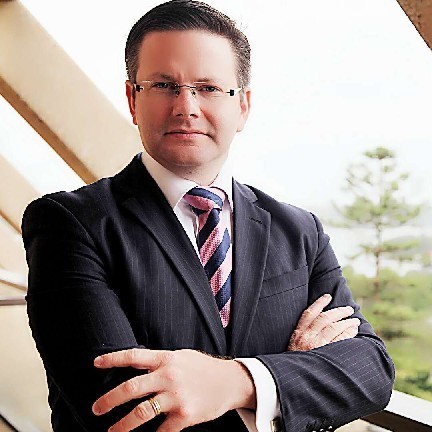
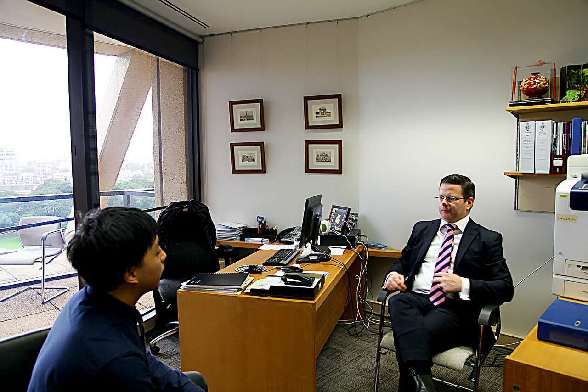
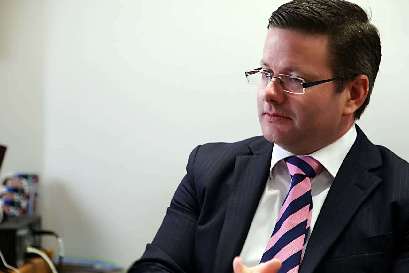
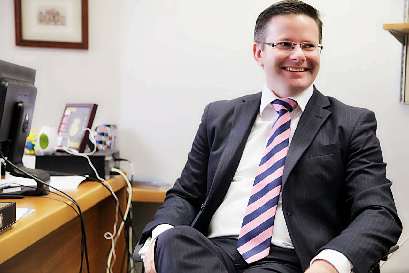
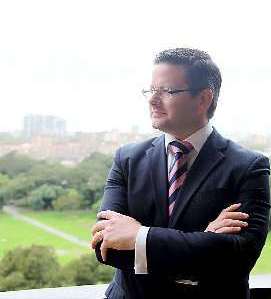
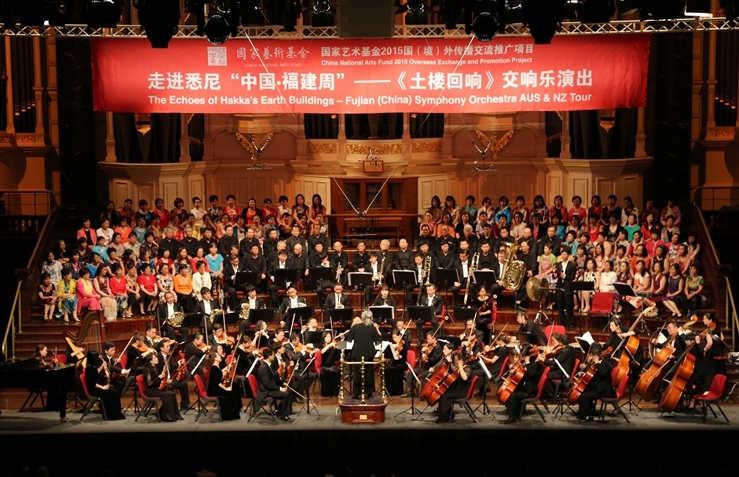 《土楼回响》在澳洲掀起文化热浪
《土楼回响》在澳洲掀起文化热浪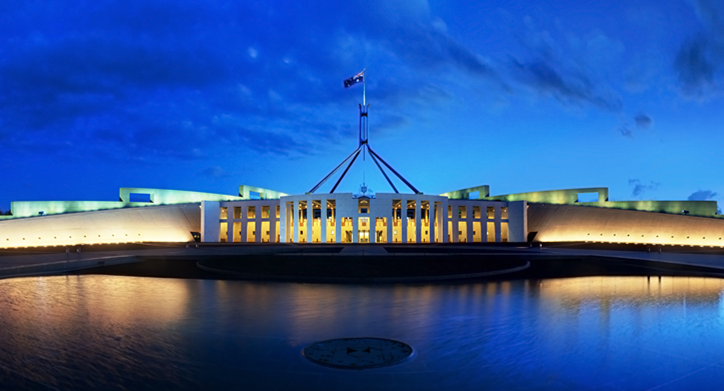 【走进内阁】认识澳大利亚最高级别的政府官员(一)
【走进内阁】认识澳大利亚最高级别的政府官员(一)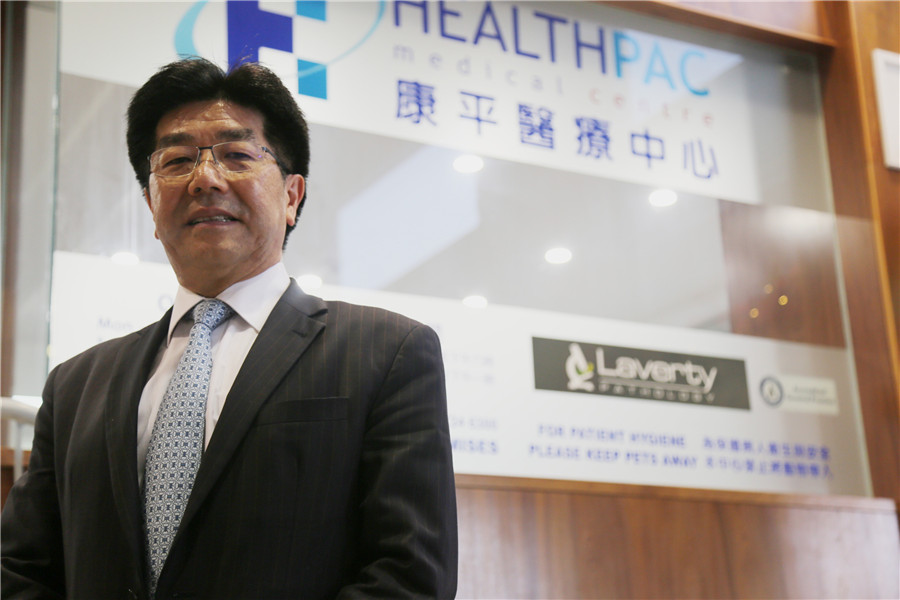 【90后看大佬】 “侨送光明,医济侨胞,借船出海”——澳洲康平国际医疗集团总裁陈星惠医生专访
【90后看大佬】 “侨送光明,医济侨胞,借船出海”——澳洲康平国际医疗集团总裁陈星惠医生专访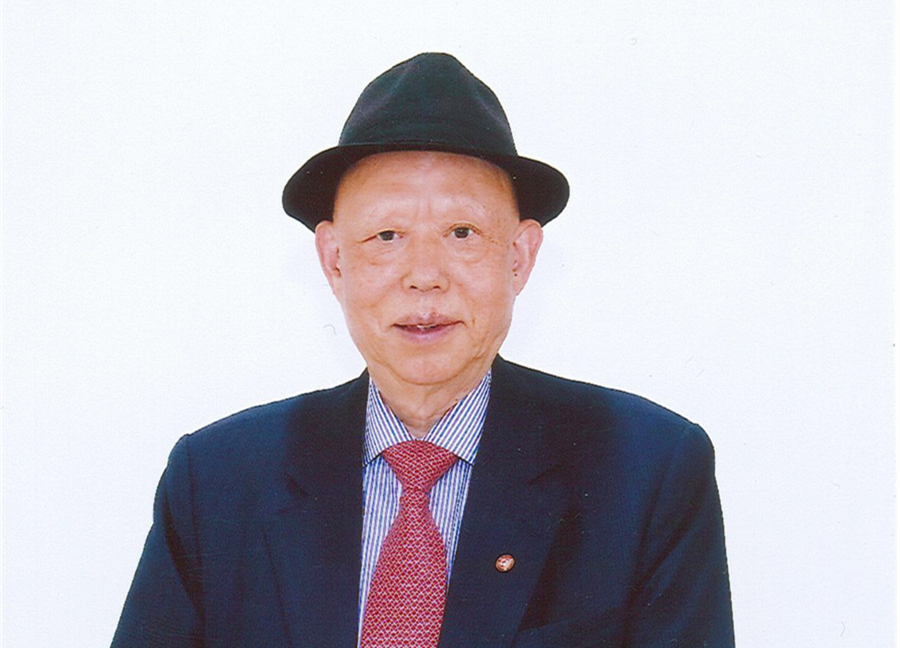 【90后看大佬】林辉源的“三不人生”
【90后看大佬】林辉源的“三不人生”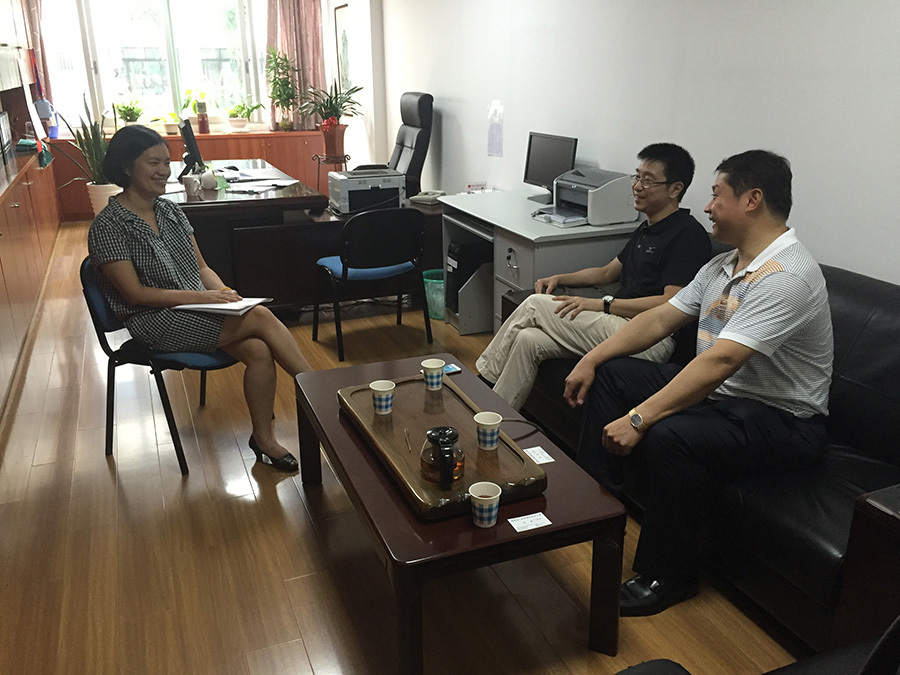 福建省侨办领导会见东南网澳大利亚站代表团
福建省侨办领导会见东南网澳大利亚站代表团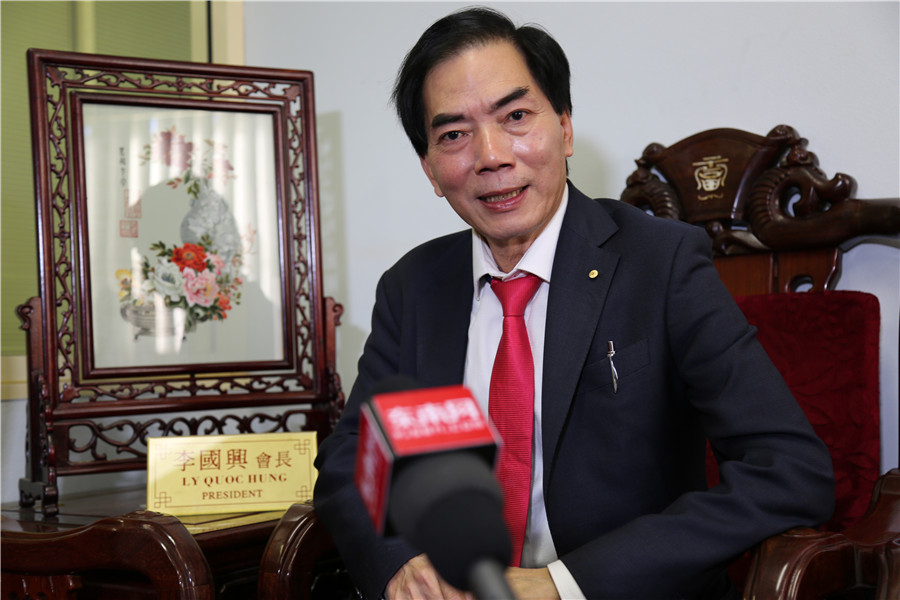 【90后看大佬】“左右合并”的幸福人生——澳洲潮州同乡会会长李国兴
【90后看大佬】“左右合并”的幸福人生——澳洲潮州同乡会会长李国兴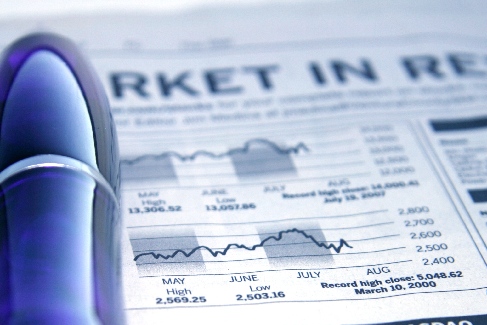 Australian consumer anxiety at three year low
Australian consumer anxiety at three year low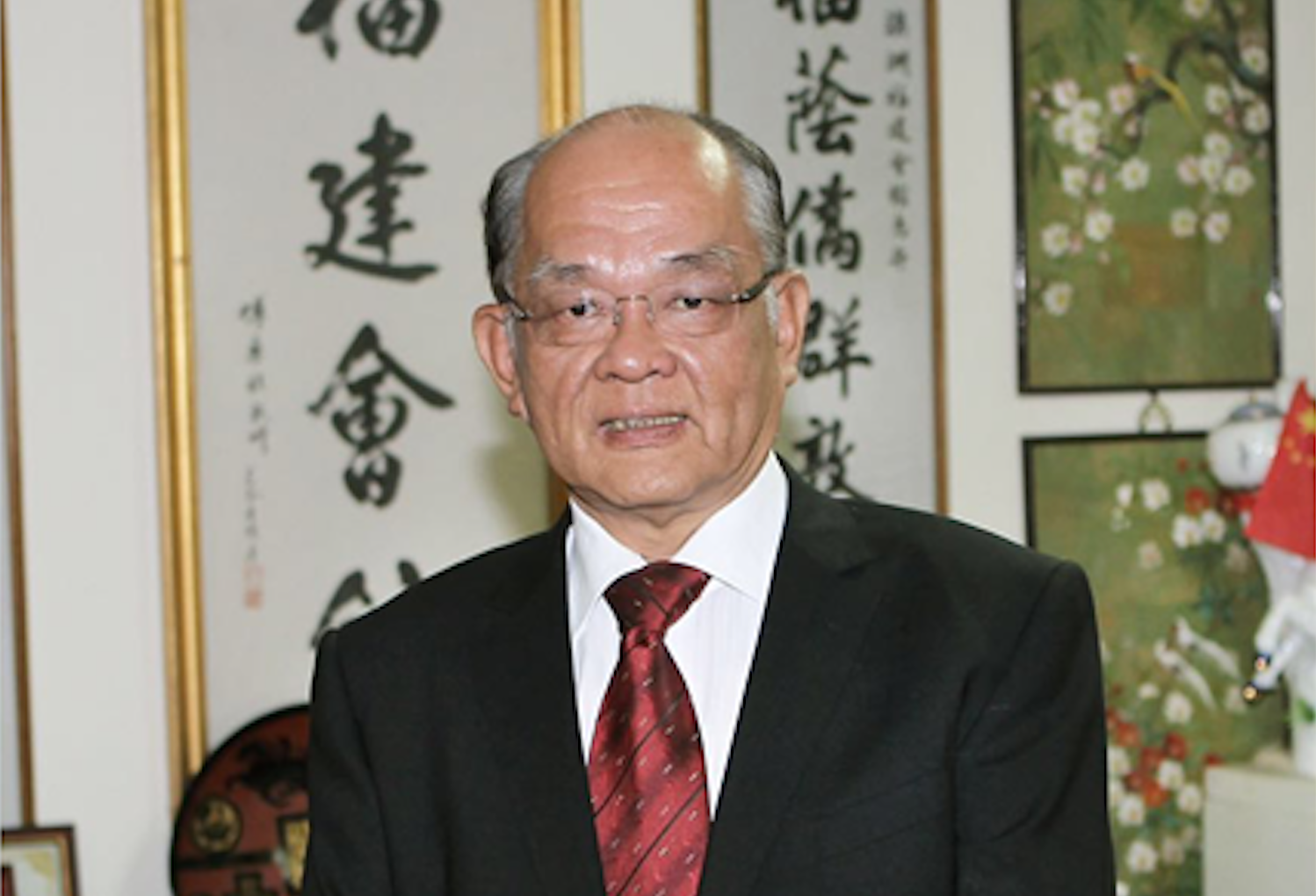 【90后看大佬】
【90后看大佬】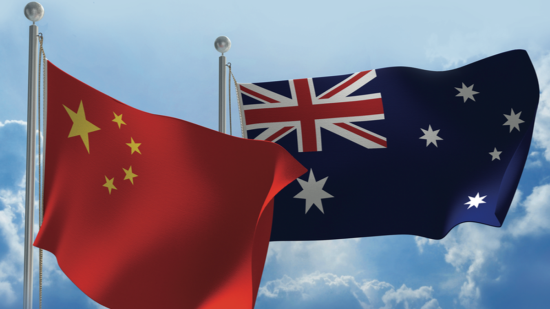 澳媒:抵制中国在澳大利亚投资徒劳无益 也会错失良机
澳媒:抵制中国在澳大利亚投资徒劳无益 也会错失良机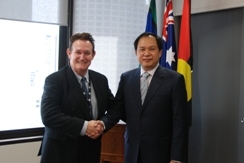 中国驻布里斯班总领事:华侨华人为当地经济做出贡献
中国驻布里斯班总领事:华侨华人为当地经济做出贡献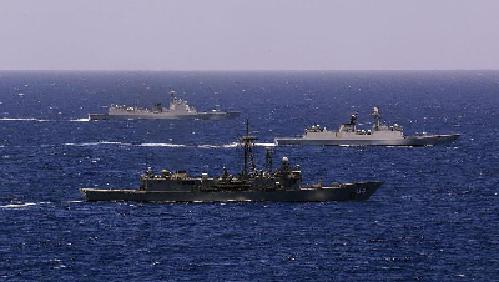 专家:澳不顾中国警告欲搅局南海 恐给美当替罪羊
专家:澳不顾中国警告欲搅局南海 恐给美当替罪羊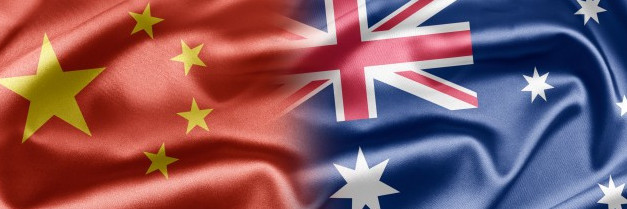 澳大利亚最大贸易代表团将访问中国
澳大利亚最大贸易代表团将访问中国
